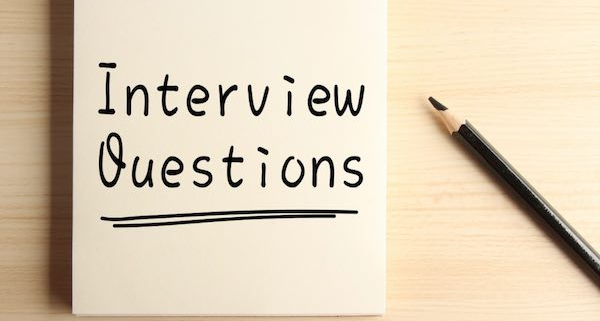7 Questions You Need to Ask During Your Interview
Despite the adrenaline rushing through your veins as you answer interview questions, trying to maintain good eye contact while responding with confidence, it’s important to ask your interviewer good questions. Questions not only show you’re prepared and serious about this potential job, but also help you decide whether or not this is the health group for you. Consider asking these seven strategic questions next time you’re interviewing.
- What is your health group’s vision and culture?
This health group might become your home away from home. So, this question is mutually beneficial: first, you’re getting insight into whether or not this is a place where you see yourself working. Second, you’re showing consideration in how you can contribute to making the health group a positive work environment. It doesn’t matter how much the salary is or how perfect the location of the health group is; if your vision and work culture don’t mesh well with theirs, then you’re not going to thrive.
Ask follow-up questions such as what their practice philosophy is, whether that includes policies regarding pharmaceutical reps, continual education, or comprehensive care. Do they have crisis and malpractice philosophies put in place? Get an understanding for what they prioritize as a health group, and consider whether these priorities align with your own.
- What’s a typical day like?
While a “typical” day in the life of a physician might not exist, it’s a good idea to ask for a general idea of what to expect. Hearing what a typical day is like will help you know whether or not you’re qualified for the job, how the health group runs things, and how to prepare for success before you walk in with your white coat on the first day. You can follow up with a question about what the training process is for physicians and tips for how to succeed as a new team member.
- What would my typical weekly schedule look like?
This is a respectful way to find out what your time demands will be like. It opens up the conversation to how much time you’ll be on call, how many hours you’ll be devoting on a daily basis, and how physicians split up responsibilities. Knowing what your week will look like is a good way to see if this physician role will fit your personal lifestyle, such as family responsibilities.
- What kind of opportunities for growth are available?
A job is a job, but a job that lets you grow will keep you motivated, give you a sense of contribution, and allow you to progress and practice at a higher level. Hopefully, the health group will have opportunities for you to take on new or specialized responsibilities and leadership roles. Asking this question shows you’re thinking about the long-term benefits this career path might offer. Don’t let the need for a job keep you from finding that one job that values you and your career.
- Are there partner or buy-in opportunities?
To expound on the last question, asking about partner or buy-in opportunities is a bold way to show your commitment and the confidence you will bring to your role. While this might be a more appropriate question for a second interview, it’s important to know what the future holds if you have professional or financial goals you’re seeking. Asking this question also shows you’re willing to go above and beyond in order to help the health group be successful.
- What is the compensation like?
Most people would warn against asking about salary during the first interview. However, Fortune claims, “A record high 70% of hiring managers now say they welcome salary discussions as early as the first or second interview, according to a new survey by global staffing firm Robert Half International—a far cry from the days when talking about money so soon marked a candidate as crass, or desperate.”
Gauge the conversation—if it feels natural to bring salary up, then respectfully ask about compensation, including benefits that go beyond salary. If you feel more comfortable waiting until the second interview, then there’s no harm in waiting.
- What’s the next step?
When you reach the end of the interview, show initiative by asking what the next step is in the hiring process. This is a strong way to show your interest and be proactive about moving the hiring process along. And don’t be afraid to send a follow-up thank you note—it’s a sure way to make a positive, lasting impression.
Grab some gumption and ask these strategic questions during your interview. Remember, this interview is a way for both you and the interviewers to decide if you will be a good fit for the practice. Just starting your job search? Start searching for your dream job now at PhysEmp.





Leave a Reply
Want to join the discussion?Feel free to contribute!